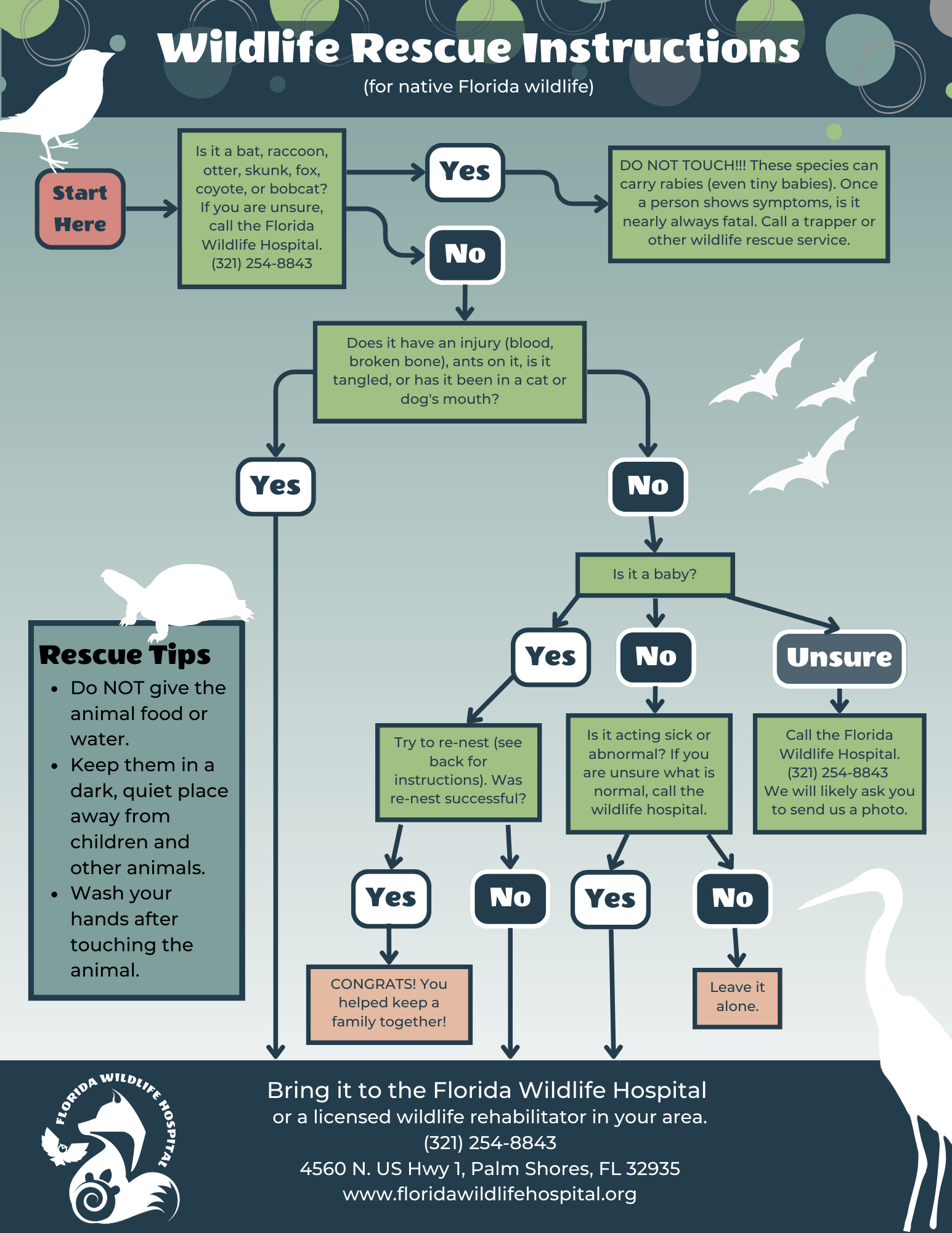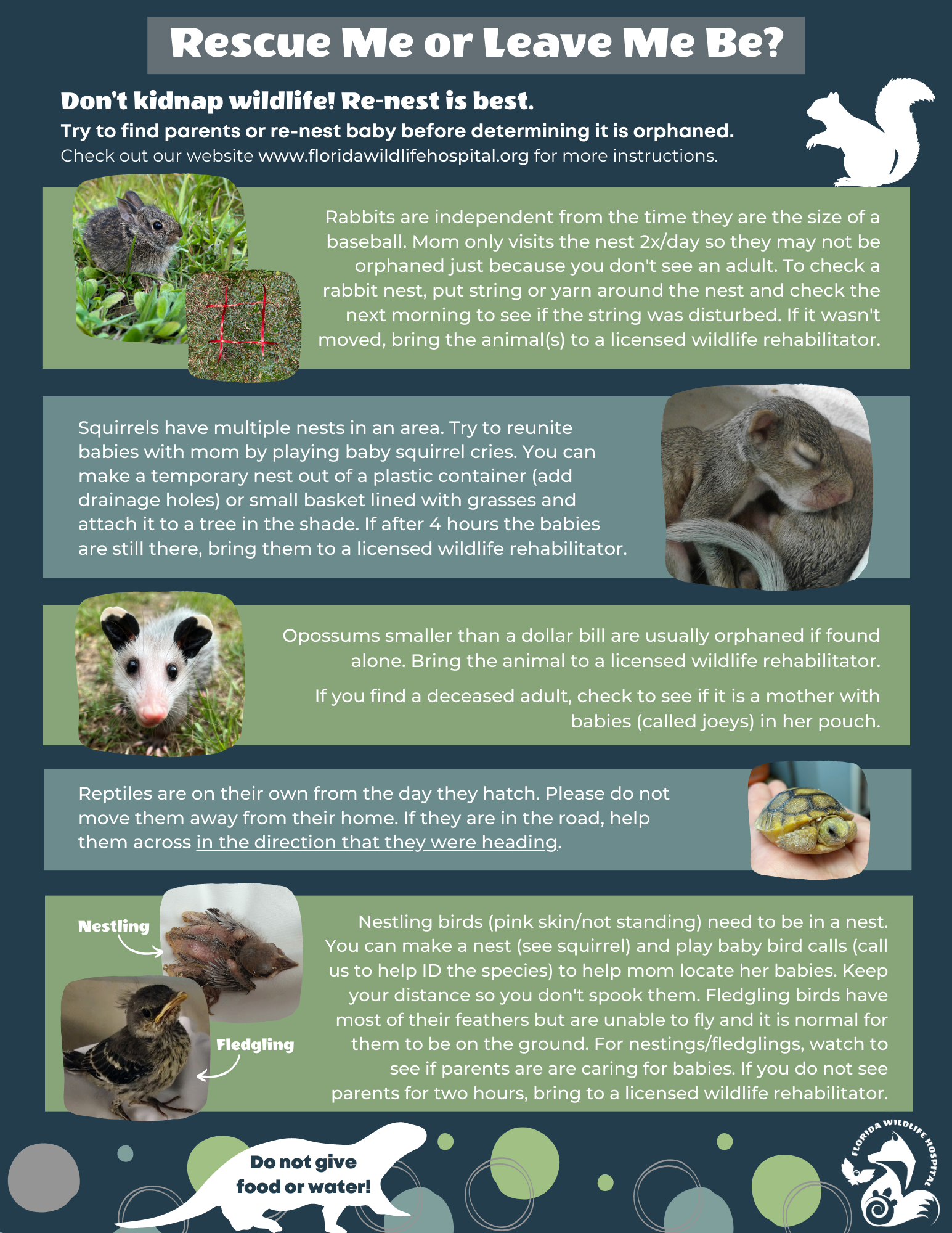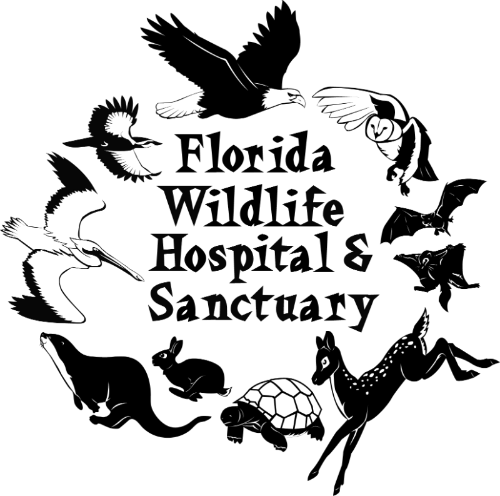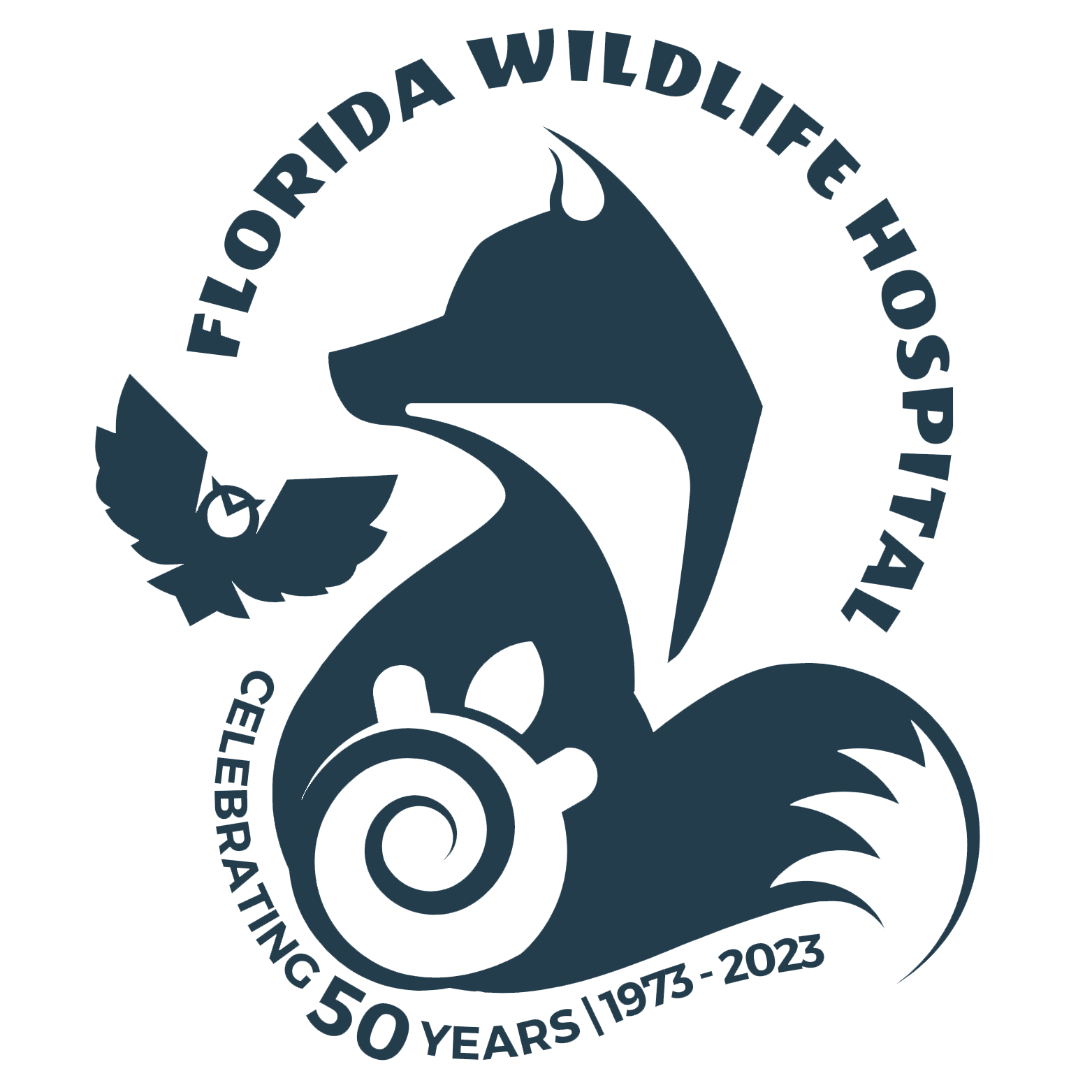Found Animal


If you have found an animal, click the corresponding button for handling instructions.
Additional Information for Adult or Other Animal Species
Rabies Vector Species
Rabies vector species are mammals that are more at risk for carrying the rabies virus (at ANY age, even babies). In Brevard County, this includes bats, otters, raccoons, skunks, coyotes, foxes, and bobcats. Please call BCSO Animal Services at (321) 633-2024, option 1. Any accidental exposure to rabies means certain death for the animal and possible expensive treatments for you. BCSO will transport these animals to us. Do NOT attempt this yourself.
Adult Mammals (Not Rabies Vector)
Use heavy duty gloves such as welding gloves and transport in a box (plastic or cardboard) with a lid and air holes. If you have any questions about how to safely retrieve the animal, call our front desk at (321) 254-8843 or your nearest rehabilitator.
Large Birds (Not Songbirds)
Use caution. Birds with long pointed beaks can stab and can cause serious injury. Birds with talons (owls, hawks, etc.) can cause serious injury. Gloves and eye protection are highly recommended. To transport, loosely cover the bird with a towel or sheet and place in a box or bin with air holes that can be securely closed. Pelagic birds like pelicans and gannets should not be held with their beak shut as their nares (nostrils) are permanently closed and this can make it difficult for them to breathe.
Turtle or Tortoise
Lift gently by grabbing the middle of the shell and put in a box for transport. If it is a softshell or snapping turtle use extra caution as these turtles have long necks that can reach back and bite. If possible use an object to push them into the box or at least have heavy gloves. All turtles and tortoises have claws that can scratch.
Non-Venomous Snake
Do not attempt to approach or handle any venomous snake! To transport non-venomous snakes, put in an old pillow case and close with a rubber band or knot. Then place in a box with air holes or no lid.



